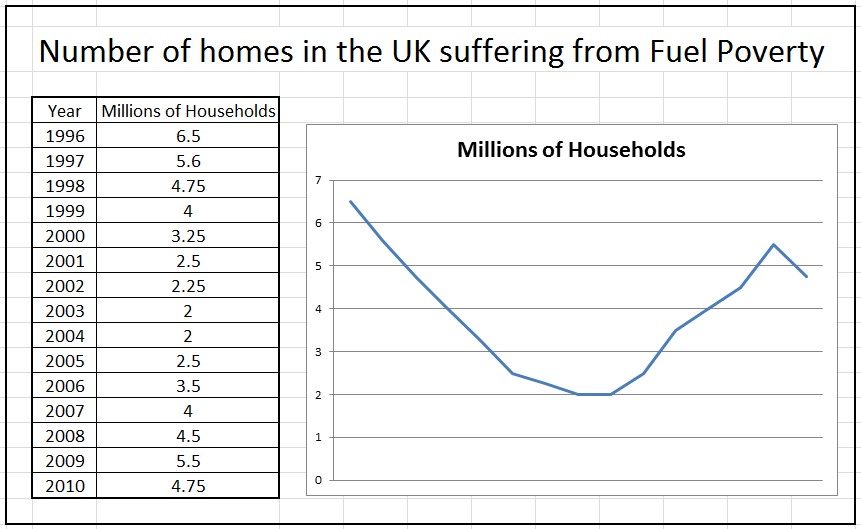In 2010, the number households in the UK which suffered from fuel poverty was estimated at around 4.75 million. This represents approximately 19 per cent of all UK households.
Installation of Energy Efficient Home Improvements to Tackle Fuel Poverty
The reduction in fuel poverty which occurred between 1996 and 2004 was due largely to a combination of rising household incomes and falling domestic energy prices. The installation of energy efficient home improvements such as double glazing, ‘A’ rated condensing boilers and cavity wall insulation also helped to cut energy consumption in homes and therefore reduce energy bills.
Rising Domestic Energy Prices
However, between 2004 and 2009, domestic energy prices increased rapidly. For example, domestic electricity prices rose by over 75 per cent and gas prices by over 122 per cent in the six year period. These energy price increases resulted in a growth in the number of UK households suffering from fuel poverty.
The overall effect of price rises for domestic energy since 2004 has more than outweighed the effect of rising incomes and improved energy efficiency. This was reversed slightly in 2010 when increases in incomes and improvements in energy efficiency combined to outweigh the effects of energy price rises in 2009.
Fuel Poverty across the UK
Northern Ireland has the greatest proportion of households suffering from fuel poverty in the UK, followed by Scotland, Wales and then England. This is mainly due to a higher percentage of households who do not have a gas supply and have to use more expensive fuels to heat their homes. It is also due to lower incomes in Northern Ireland than the other UK Nations.


